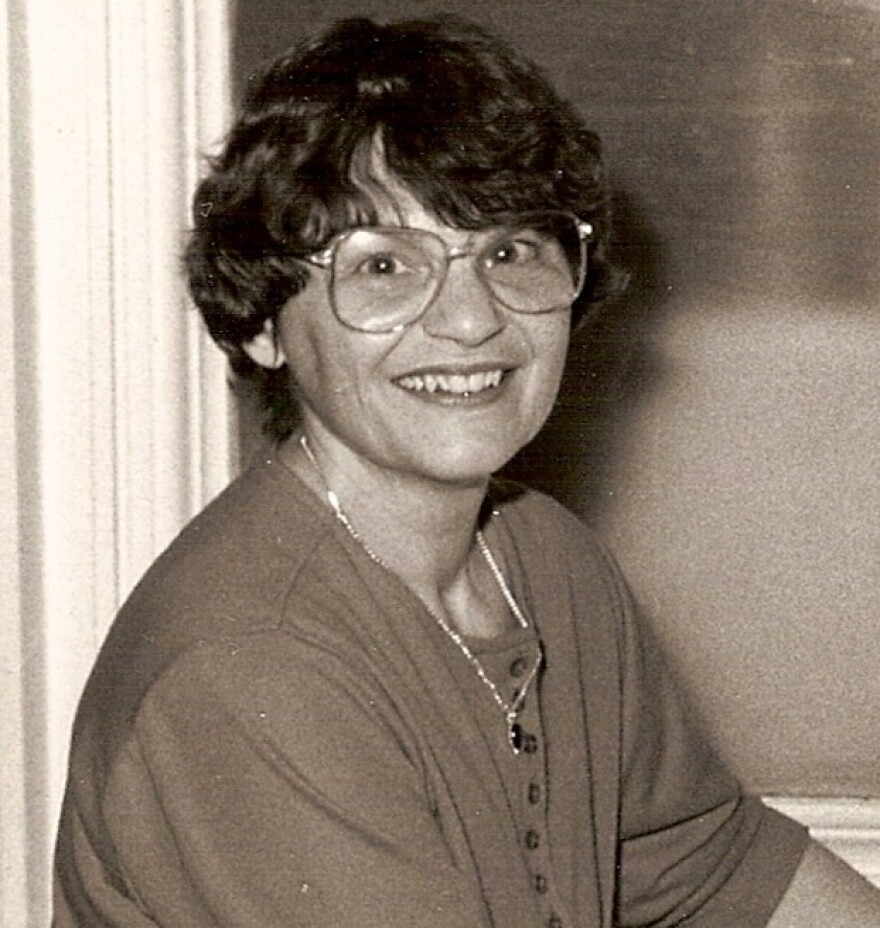Former Missouri State Rep. Sheila Lumpe, who reluctantly entered statewide politics and became the first woman to lead the powerful House Budget Committee and came within a whisper of being the first speaker of the House, died on Wednesday.
When her husband began cajoling her to run for the office, she balked, siding with detractors who thought her “too soft” and subject to being “eaten alive” by big-time politics.
“No, I don’t want to run for state rep,” she recalled telling her husband. “I don’t know anything about agriculture. I don’t know anything about transportation. I don’t know anything about insurance.”
He assured her she would learn and that he would help.
“He just nagged and nagged and nagged,” she told The State Historical Society of Missouri during a 1999 oral history session.
She ran and she won. And she kept winning, serving eight consecutive terms in the Missouri legislature before being appointed to the Public Service Commission.
Ms. Lumpe, a Democrat, died June 4 at her University City home from complications of Alzheimer’s disease. She was 79.
Services will be next Friday at University United Methodist Church in University City.
“Of all the candidates I supported over the years, I make a strong case that Sheila was the best,” said Alan Wheat, Ms. Lumpe’s former House colleague and later, U.S. congressman. “She was extremely smart, very hardworking, but what set her apart was her empathy and compassion. She was a champion of all people.”
Basic training
Ms. Lumpe was in her mid-40s when she was elected to the legislature and she was well prepared for the rough-and-tumble world of state politics: she’d spent time in “boot camp,” serving on the University City school board.

She’d initially been reluctant to do that as well. She had always been a behind the scenes worker with organizations such as the League of Women Voters.
“I’d involve myself in somebody else’s campaign or city bond issues or, since my children were in school, the PTA and that kind of thing,” she said. “One thing just led to another.”
It led to her being elected to the school board in 1973. It was a contentious time. The schools were just beginning to fully integrate and “there were some really divisive philosophies of how we should deal with this,” she recalled. She expressed her concern that incumbent board members needed to be challenged. With some prodding from friends, she took up the challenge and entered the race at the last minute.
She said: “I thought, ‘Oh, what the heck?’ It’s a six-week campaign. We’ll just have a good time and we’ll be able to go out and speak and raise some issues and that sort of thing.”
Eight years later, she was retiring school board veteran with “a thick skin because you had the parents jumping on you all the time.
“If you let that get to you, you just collapsed,” she said.
A progressive voice
She did not fold. Instead, with many begging her to remain on the board, in 1980 she ran for state representative and won there, too. She deemed her first campaign “fairly civil,” noting one negative from a small Catholic Church group who sent a letter to parishioners calling her “anti-family.”
“Which was too funny,” Ms. Lumpe said, “because I was running against three bachelors, and here I was this old married woman with four kids.”

While serving the 72nd District, which encompassed parts of University City, Wellston and Clayton, Ms. Lumpe fought unabashedly on behalf of traditionally liberal issues, like a woman’s right to choose. She helped Planned Parenthood retain the funding that abortion foes in the legislature repeatedly put on the chopping block and national figures, like Sen. Bob Dole during his 1996 run for president.
Dole said he trusted the people; while Democrats trust the government.
In a letter to the St. Louis Post-Dispatch she said, “Maybe he means that he trusts men. It is clear that he does not trust women because he wants to control by Constitutional Amendment a women's ability to determine her reproductive choices.”
In a 1995 Post-Dispatch story, she referred to herself as a “practical progressive.”
“She became a hero to progressives and she was fearless,” Wheat said. “Nothing - not the old boys’ club – nothing, held her back.”
Deemed a fiscal conservative by some of her colleagues, by any name, she was diligent and effective. She sponsored numerous bills and declared her pride in having a hand in passing important legislation, including education and environmental bills, but expressed regret that she could not push through health care for children. Her efforts paid off after she left office.
“(The bill) came back and it passed,” she said. “That’s one of the things I thought should happen during my lifetime – and (it) did.”
Service rewarded
Ms. Lumpe was appointed to the House Budget Committee by House Speaker Bob D. Griffin – just in time to deal with the new and controversial welfare reform law signed by President Bill Clinton in 1996. The law gave state officials more authority, but little guidance in running welfare and work programs with Federal money.
After 17 years in the statehouse, Ms. Lumpe was named to the Missouri Public Service Commission by Gov. Mel Carnahan in 1997. She became chair of the five-member panel, which regulates the state’s telephone, gas and electric utilities, until 2001. She completed her six-year term in 2003.
During her tenure, Ms. Lumpe oversaw numerous changes in utility regulations and structure, including the split of the 314 area code.
Among her many honors was being named Legislator of the Year by the Missouri Association of Rehabilitation Facilities and the Outstanding Public Service Award from the University of Missouri-St. Louis. She received the Leadership in Government Award from the YWCA and the Elijah P. Lovejoy Society of St. Louis human rights award.
Home, not alone
Sheila Faye Ensminger was born April 17, 1935, in York, Penn., into a Republican family “activists and abolitionists” whose teachings, she said, were closer to the modern Democratic Party’s platform.
She was the only child of Methodist missionaries. When she was about eight months old, her parents, the Rev. Earl Ensminger and the Rev. Ruth Funk Ensminger, moved to Sierra Leone, West Africa – without her – where they started a girls’ school. They left her in the care of her maternal grandparents and among nine playmates: her eight aunts and an uncle.
When she was about 9 years old, she moved with her parents to Huntington, Ind., where she graduated from high school in 1953. Her parents then returned to Sierra Leone and she began her college education there, studying economics at Fourah Bay College for a year. She met her husband, Gustav “Gus” Lumpe, while completing her degree at Indiana University. They were married in 1958.
The couple lived in Indiana and Iowa, Gus worked as a journalist, before moving to St. Louis in 1966. Here he worked at the old St. Louis Globe-Democrat. He later became the editor of the Teamsters newspaper and chairman of the St. Louis County Democratic Central Committee. He died in 2009.
She had begun a master’s program at Johns Hopkins after earning her bachelor’s degree; she completed it at the University of Missouri-St. Louis in 1989.
After leaving public service, she returned to her behind-the-scenes work of helping others like University City Mayor Shelley Welsch get elected. She was Welsch’s campaign manager in her successful 2006 mayoral race.
“She was a model for legislators of every political persuasion and all admired the work she did,” Wheat said.
In addition to her husband of 50 years, Ms. Lumpe was preceded in death by her parents.
Her survivors include three sons, Abraham (Christine) Lumpe of Florissant, Nathan Lumpe of St. Louis and Andrew Lumpe of Colorado Springs, Colo., a daughter, Karen Kelley of Batesville, Ark., and six grandchildren.
Visitation will be from 4 to 7 p.m. Friday, June 13, with services immediately following at University United Methodist Church, 6901 Washington Avenue, in University City.


